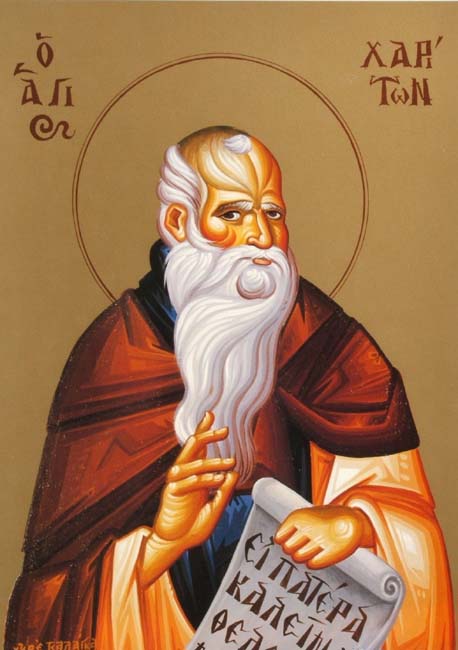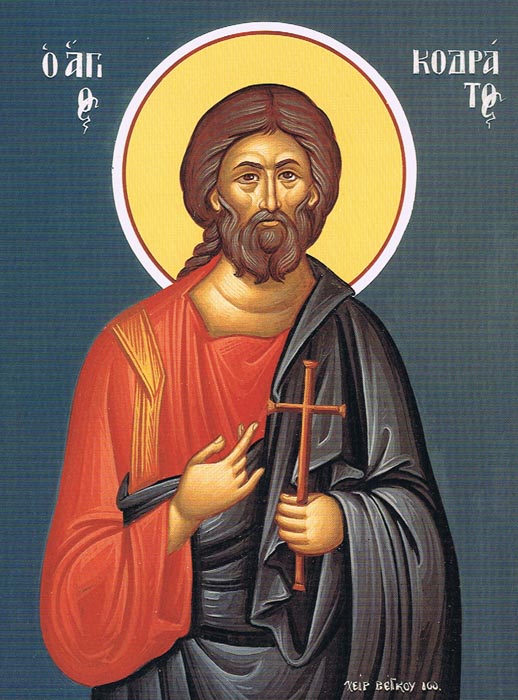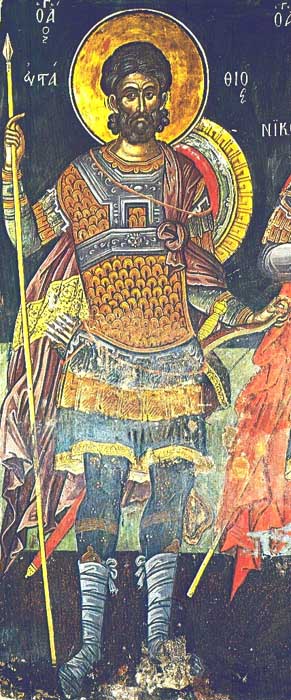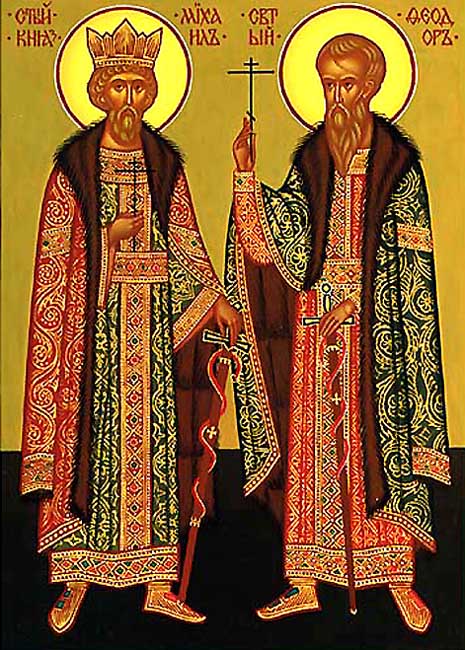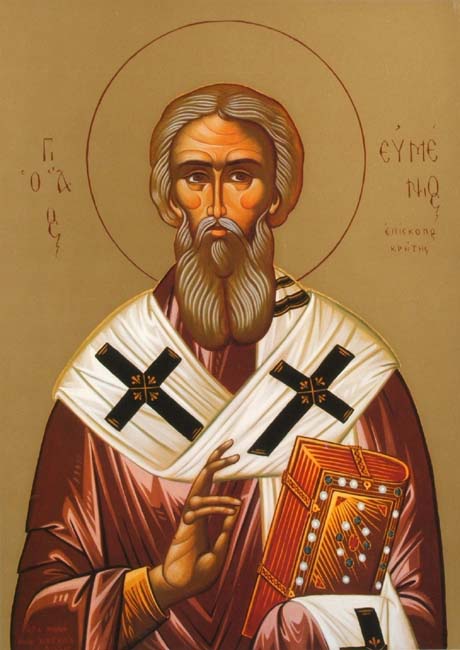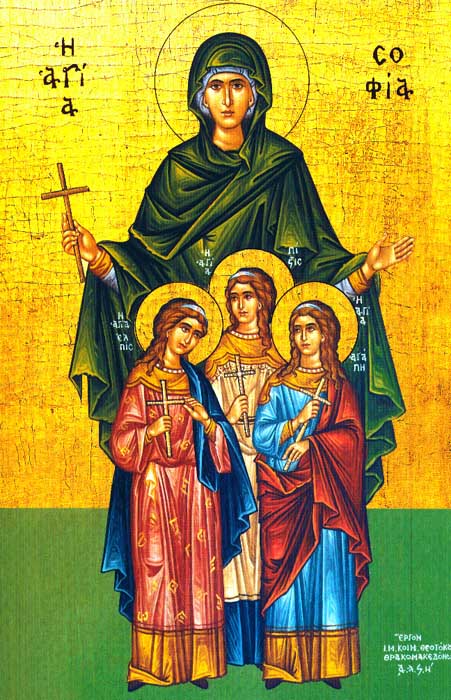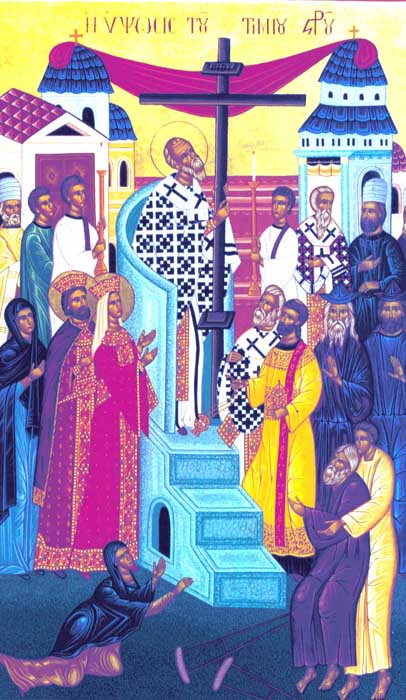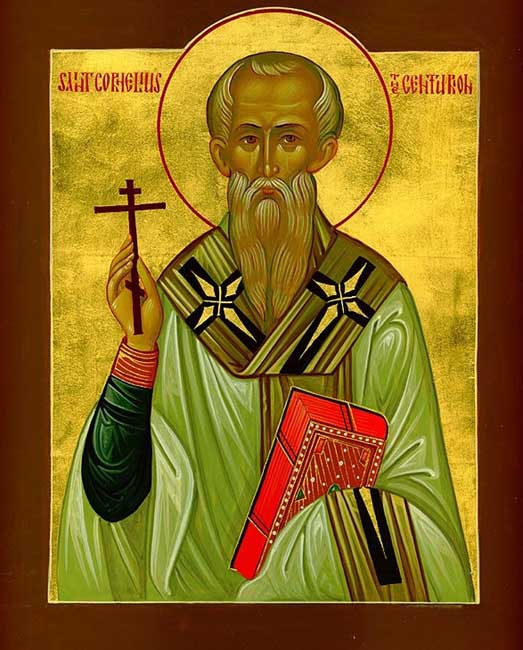Our Venerable Father and Confessor Chariton.
Chariton was a distinguished and devout
citizen of the city of Iconium. Imbued with the spirit of his
compatriot, St. Thecla, Chariton openly confessed the name of Christ.
When a bitter persecution of Christians began during the reign of
Emperor Aurelian, Chariton was immediately brought to trial before
the eparch. The judge ordered him to worship the gods, but Chariton
replied: ``All your gods are demons, and were cast from the heavens
into the nethermost hell.'' Chariton clearly proclaimed his faith in
the One Living God, the Creator of all, and the Lord Jesus, the
Savior of mankind. The eparch ordered that he be tortured and beaten,
until his whole body was like one great wound. When Aurelian's evil
deeds caught up with him and he died an evil death, Chariton was
freed from torture and prison. He then set out for Jerusalem. On the
way he was seized by robbers, but escaped from them by God's
providence. Chariton, not wanting to return to Iconium again,
withdrew to the wilderness of Pharan, where he founded a monastery
and gathered monks. He established a rule for the monastery and then,
to avoid the praise of men, withdrew to another wilderness near
Jericho. There he founded another monastery called the Monastery of
Chariton. Finally, he founded a third monastery, Souka, which the
Greeks called the Old Lavra. Chariton died at a great old age, and
took up his abode in the glory of his Lord on September 28, 350. His
relics repose in his first monastery. The composition of the rite of
monastic tonsure is attributed to St. Chariton.
Wenceslaus, Prince of the Czechs.
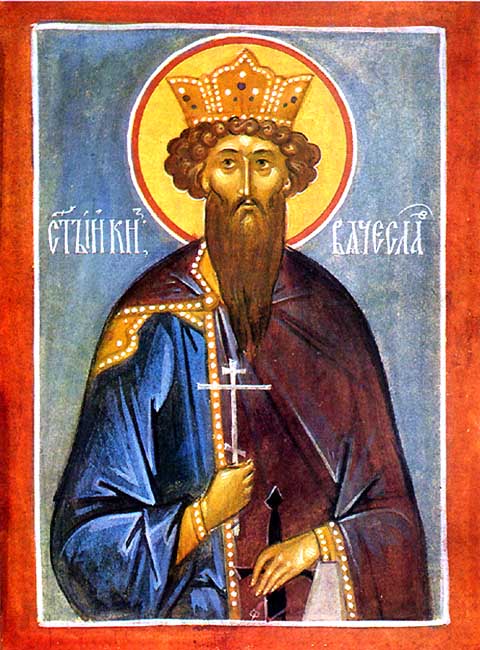 Wenceslaus was the grandson of St.
Ludmilla. As king, he labored in the Faith like the great ascetics,
and strengthened the Orthodox Faith among his people. He was strict
in ensuring that no innocent person suffer in the courts. In his zeal
for the Christian Faith and in his love for his fellow man, St. Wenceslaus purchased pagan children who were being sold as slaves, and
immediately baptized them and raised them as Christians. He
translated the Gospel of St. John into the Czech language, and
transported the relics of St. Vitus and St. Ludmilla to Prague. His
brother Boleslav invited him to be his guest, and then killed him in
his court. Immediately after this, Boleslav brought in German priests
and had the services celebrated in Latin. St. Wenceslaus suffered in the
year 935 and his relics repose in Prague.
Wenceslaus was the grandson of St.
Ludmilla. As king, he labored in the Faith like the great ascetics,
and strengthened the Orthodox Faith among his people. He was strict
in ensuring that no innocent person suffer in the courts. In his zeal
for the Christian Faith and in his love for his fellow man, St. Wenceslaus purchased pagan children who were being sold as slaves, and
immediately baptized them and raised them as Christians. He
translated the Gospel of St. John into the Czech language, and
transported the relics of St. Vitus and St. Ludmilla to Prague. His
brother Boleslav invited him to be his guest, and then killed him in
his court. Immediately after this, Boleslav brought in German priests
and had the services celebrated in Latin. St. Wenceslaus suffered in the
year 935 and his relics repose in Prague.The Holy Prophet Baruch.
He was a disciple and faithful friend of the great prophet Jeremiah. He prophesied the return of the Jews from the Babylonian Captivity, the destruction of Babylon, and the coming of the Son of God to earth. It is held that he was slain by the Jews in Egypt, as was the Prophet Jeremiah, in the seventh century before Christ.The Passing of our Blessed Father and Confessor Bishop Nicetas Budka (1949).
Respectfully Taken From the:
"The Prologue of Ohrid"
by St. Nikolai of Zica, Serbia(Velimirovic)
